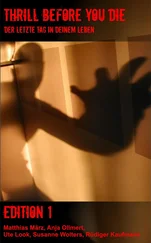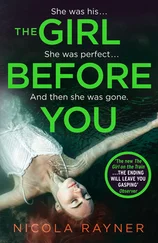In the journal was a photo essay about reading in America, in which dozens of photographers had captured all kinds of people reading in one twenty-four-hour span. Some were authors giving readings at universities or bookstores, and some were cameos of actors or politicians holding in their hands whatever book they happened to be enjoying at the moment. There were a few of small book groups gathered in suburban living rooms to discuss a novel they had just read together. And there in the midst of it was one of Molly the gorilla in her five-thousand-square-foot Woodside, California, pen with-of all people-Spencer McCullough beside her.
Over and over Charlotte read the photo caption:
Molly, a thirty-one-year-old female gorilla, and Spencer McCullough, the thirty-three-year-old communications director for the animal rights organization FERAL, savor one of both Molly’s and McCullough’s favorite children’s books, Maurice and the Magic Banana. Though McCullough read the popular children’s book aloud to the western lowland gorilla, Molly is capable of reading about Maurice’s adventures with the enchanted fruit on her own. Molly understands well over two thousand words.
“Molly’s and my DNA are 97.7 percent identical,” says McCullough, an obvious fan of both the very real gorilla and the fictional Maurice. “Should it really be all that surprising that the two of us share a taste in children’s literature, as well?”
No one had ever told her about the picture and when she saw it instantly she guessed why: When Maurice had enjoyed his brief stay atop the children’s best-seller lists-nudging aside Harry Potter and Violet Baudelaire-her father had refused to read it aloud to her because he said it was completely idiotic and (in some way she didn’t understand at the time) vaguely obscene. Certainly he hadn’t viewed Maurice and the Magic Banana as “children’s literature” when she’d been younger. Here he was, however, reading it aloud quite happily with some gorilla because he could use the opportunity to get some ink for FERAL. To make a point that gorillas were smart and should be respected.
Initially she had been hurt, and she had felt betrayed as she had ridden the bus across town with her mom. She had wandered into the school like a sleepwalker, and it was only after she had said good-bye to Catherine and arrived at her homeroom did the pain become transformed into resentment. Then irritation. Then, finally, disgust. She was well aware of the cyclical nature of her relationship with her father-or, to be precise, of her father’s relationship with her. She knew that he would go through phases in which he would be absent: Sometimes he would be literally gone, traveling to whatever dolphins or bunnies or baby elephants needed him that month, and sometimes he would be home in body but his spirit would be with those creatures great and small, all of whom, it seemed, were more interesting to him than his family. And then, almost as if he had suddenly discovered that he had a daughter (or a wife), for an all too brief period he would spoil her with whatever she wanted and do with her whatever she liked. She had grown accustomed to the pattern, savoring the waves when she could and accepting the barrenness of low tide when he was preoccupied with animals other than the mammals with whom he lived.
Including his cats. For an animal lover, he didn’t spend a heck of a lot of time with the family’s own cats, an irony that she discovered wasn’t lost on her father when she brought it up to him one time when she was in the sixth grade.
“They don’t need me,” he’d said simply, shrugging, when she confronted him. “They’re anything but mistreated. Besides, they have you and your mom.”
And when she’d gone through that phase when she wanted a dog desperately, a big and gentle golden retriever like Grandmother’s, her father had adamantly refused to subject a dog to the confines of their city apartment.
“Grandmother’s dog is happy, and Grandmother lives in an apartment,” she’d argued.
“No, your grandmother lives in a private Park Avenue wing of the Metropolitan Museum of Art. We just call that massive sprawl an apartment to be polite,” he’d responded, smiling. But he hadn’t budged.
Now in algebra, her last class of the day, she was still unable to push the image of her father and Molly and the banana-touting Maurice from her mind. Her ire was so great that she thought she might cry, and she vowed that before going home-after school and the information meeting for the kids trying out for The Secret Garden-she would stop by the bookstore near their apartment and buy a copy of Maurice and the Magic Banana. When her father came home from FERAL (and she had no delusions that he would leave work early this afternoon, not on the day of his triumphant return), she would paw at the air like a gorilla, and she would grunt, screech, and ululate like the monkeys she had seen on TV. (Of course she had never seen a monkey at a zoo like a normal child, a source of periodic bitterness for her-including this very moment.) Then she would toss the book into his lap and demand that he treat her as well as he had a big, hairy gorilla he’d probably met one time in his life.
PAIGE SUTHERLAND would never tell Dominique Germaine or Keenan Barrett what she thought of the FERAL offices, because she valued their business and people were entitled to their tastes-however misguided. Still, whenever she dropped by for a meeting it was always disarming to see so many framed images of rabbits intentionally blinded by cosmetic companies and chickens trapped in what looked like hatbox-sized cages and monkeys with wires up their… well, in every orifice on their bodies, it seemed. Dominique’s office didn’t have those sorts of photos, of course, because she had those massive paintings instead of birds whose plumage looked more than a little to Paige like human vaginas. She thought they would have been great in a New Age gynecologist’s office.
There was also a massive, framed presentation of the Ovid poem that FERAL used parts of almost everywhere, the lettering in this case a pretentious cross between wedding invitation calligraphy and the ninth-century script of the monk of Saint Gall:
He who can slit his calf’s throat, hear its cries
Unmoved, who has the heart to kill his kid
That screams like a small child, or eat the bird
His hand has reared and fed! How far does this
Fall short of murder? Where else does it lead?
Away with traps and snares and lures and wiles!
Never again lime twigs to cheat the birds,
Nor feather ropes to drive the frightened deer,
Nor hide the hook with dainties that deceive!
Destroy what harms; destroy, but never eat;
Choose wholesome fare and never feast on meat!
Moreover, because so much of what FERAL did revolved around publicity, many of the employees’ cubicle or office walls were covered with posters of the organization’s recent campaigns against leather and ice cream and the running of the bulls in Pamplona. Most of these were pretty unpleasant, though she did notice an exception this morning: On a wall in the reception area hung a nice new poster of fashion models posing nude to protest fur. It was taken in one of the Greek statue galleries at the Metropolitan, and she couldn’t imagine how Dominique or Spencer (or one of his minions) had convinced the museum to let them do a photo shoot there. She was mightily impressed. She thought the group would be a lot more successful if they did more with nudity and less with Ovid.
Nevertheless, Paige, too, was a vegetarian, though she still had her share of leather in her wardrobe and accessories. Oh, she’d been a bit of a phony when she’d first agreed to help FERAL with a complaint to the Federal Trade Commission about New York State’s “Lucky Cow” campaign: a series of television commercials the state’s dairy board had produced that suggested Empire State dairy cows were the luckiest bovines on the planet. In Dominique and Keenan and Spencer’s opinion, the ads took the notion of permissible puffery to an altogether new pinnacle of deceptiveness, since they suggested a dairy cow led a long and bucolic life, and stood around grazing and nursing her young in green fields with small coppices of shade trees most days. This was complete malarkey-but, alas, not everyone knew it.
Читать дальше











